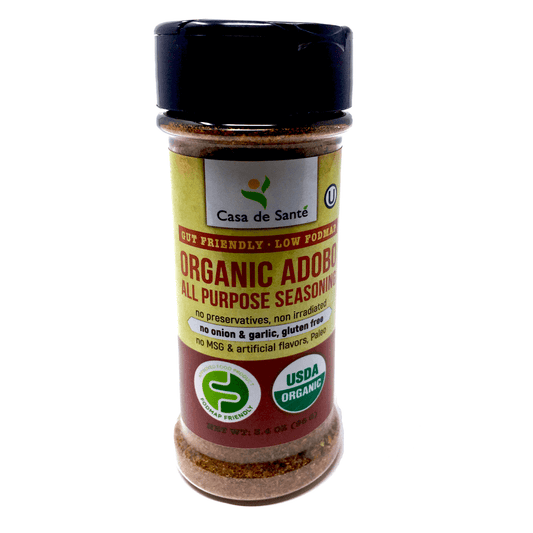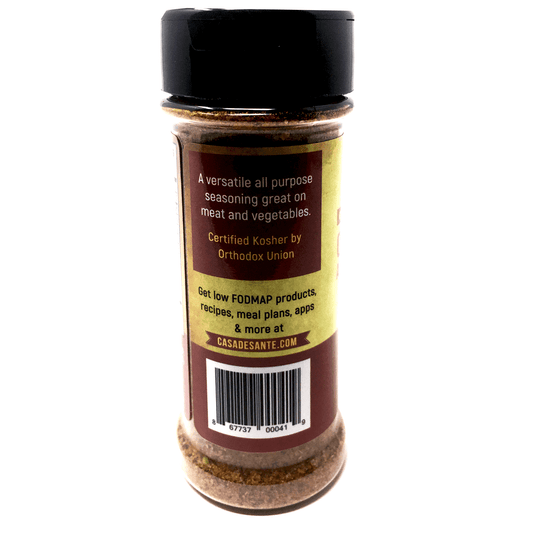Leaky Gut and Granola
Leaky Gut Syndrome is a condition that is gaining increasing attention in the field of gastrointestinal health. It refers to a permeability issue in the lining of the digestive tract, allowing toxins and bacteria to enter the bloodstream. The causes and treatments for this condition are still being studied, but one potential trigger that has been identified is diet. Specifically, the role of granola in exacerbating leaky gut symptoms has come under scrutiny.
Understanding Leaky Gut Syndrome: Causes, Symptoms, and Treatment
Leaky Gut Syndrome is believed to be caused by a combination of factors including genetics, stress, infection, and poor diet. The symptoms can vary from person to person but commonly include bloating, gas, diarrhea, constipation, fatigue, and food sensitivities. Treatment options consist of lifestyle changes, such as reducing stress and increasing exercise, as well as dietary modifications and supplementation with gut-healing nutrients.
Genetics play a role in the development of Leaky Gut Syndrome. Certain individuals may have a genetic predisposition that makes them more susceptible to the condition. However, it is important to note that genetics alone do not determine whether someone will develop Leaky Gut Syndrome. Environmental factors and lifestyle choices also play a significant role.
In addition to the physical symptoms mentioned, Leaky Gut Syndrome can also have an impact on mental health. Research suggests that there may be a link between Leaky Gut Syndrome and conditions such as anxiety and depression. This is thought to be due to the connection between the gut and the brain, known as the gut-brain axis. Imbalances in the gut can affect neurotransmitter production and communication, leading to mood disturbances.
The Role of Diet in Leaky Gut: Granola as a Potential Trigger
Granola, a popular breakfast option for many health-conscious individuals, is often perceived as a healthy choice. However, for those suffering from leaky gut, granola can potentially be a trigger due to its composition and certain ingredients. Granola typically contains grains, nuts, seeds, sweeteners, and sometimes dried fruits. These components can have negative impacts on gut health, leading to further inflammation and permeability in the digestive system.
One of the main concerns with granola is its high fiber content. While fiber is generally considered beneficial for digestive health, excessive fiber intake can be problematic for individuals with leaky gut. The insoluble fiber found in granola can be difficult to digest and may exacerbate symptoms such as bloating, gas, and abdominal discomfort.
In addition to fiber, granola often contains added sugars and sweeteners. These ingredients can contribute to an imbalance in gut bacteria and promote the growth of harmful microorganisms. The presence of dried fruits in granola can also be problematic for individuals with leaky gut, as they are high in fructose, which can be difficult to absorb and may worsen symptoms.
Exploring the Link Between Gluten and Leaky Gut
Gluten, a protein found in wheat and other grains, has been linked to various digestive disorders, including leaky gut syndrome. For individuals with gluten sensitivity or celiac disease, consuming granola that contains gluten can lead to inflammation and damage to the intestinal lining. This can further compromise the integrity of the gut barrier, contributing to leaky gut symptoms. It is important for individuals with leaky gut to carefully consider the gluten content in their chosen granola products.
Research has shown that gluten can trigger an immune response in individuals with leaky gut, leading to increased intestinal permeability. When the gut barrier is compromised, undigested food particles and toxins can leak into the bloodstream, causing inflammation and potentially triggering autoimmune reactions. Therefore, avoiding gluten-containing foods, such as granola with gluten, is crucial for managing leaky gut and promoting gut healing.
Is Granola a Friend or Foe for Leaky Gut Sufferers?
The answer to whether granola is a friend or foe for those with leaky gut depends on multiple factors. While granola can be a convenient and tasty option for breakfast, individuals with leaky gut need to pay attention to the specific ingredients in their granola and how they personally react to them. Some individuals may find relief by avoiding certain ingredients commonly found in granola, such as gluten, dairy, and refined sugars. Others may be able to tolerate specific types of granola that are made with gut-friendly ingredients like gluten-free grains, nuts, and seeds.
It is important for individuals with leaky gut to read the labels of granola products carefully to ensure they are free from any potential triggers. This may involve looking for granola that is certified gluten-free, dairy-free, and free from refined sugars. Additionally, individuals may want to consider making their own granola at home using gut-friendly ingredients to have better control over the ingredients used.
Furthermore, it is worth noting that portion control is also important when consuming granola for those with leaky gut. While granola can provide a nutritious and satisfying breakfast option, consuming large amounts of it may overload the digestive system and exacerbate symptoms. Moderation is key, and individuals should listen to their bodies and adjust their portion sizes accordingly.
The Impact of Sugar in Granola on Leaky Gut Health
The excessive consumption of refined sugars, commonly found in many commercial granola products, can have detrimental effects on gut health. Excessive sugar intake can disrupt the balance of gut bacteria, leading to dysbiosis and inflammation in the gut. For individuals with leaky gut, it is important to choose granola products that are low in added sugars or opt for alternatives like homemade granola sweetened with natural sources like honey or maple syrup.
In addition to the negative effects on gut health, excessive sugar consumption in granola can also contribute to weight gain and increase the risk of developing chronic diseases such as diabetes and heart disease. The high sugar content in commercial granola products can lead to spikes in blood sugar levels, causing insulin resistance over time. This can further exacerbate the symptoms of leaky gut and worsen overall gut health. Therefore, it is crucial to read nutrition labels carefully and choose granola options that are not only low in added sugars but also high in fiber and whole grains to support a healthy gut and overall well-being.
How Processed Ingredients in Granola Can Contribute to Leaky Gut
Many commercial granola products contain processed ingredients such as refined oils, artificial flavors, and preservatives. These processed ingredients can be harmful to gut health and can contribute to inflammation and permeability in the digestive tract. It is advisable for individuals with leaky gut to choose granola products that are made with whole food ingredients and minimal processing.
Refined oils, such as vegetable oil or canola oil, are commonly used in the production of commercial granola. These oils undergo extensive processing, which often involves high heat and chemical solvents. This processing can strip the oils of their natural nutrients and antioxidants, leaving behind unhealthy fats that can contribute to inflammation in the gut.
In addition to refined oils, artificial flavors and preservatives are frequently added to granola products to enhance taste and extend shelf life. These additives can disrupt the balance of beneficial bacteria in the gut and promote the growth of harmful bacteria. This imbalance can lead to increased intestinal permeability, or leaky gut, where the lining of the digestive tract becomes more porous and allows toxins and undigested food particles to enter the bloodstream.
The Benefits of a Gluten-Free Granola Diet for Leaky Gut Relief
A gluten-free diet has been shown to have numerous benefits for individuals with leaky gut. By eliminating gluten-containing grains like wheat, barley, and rye from their diet, individuals with leaky gut can reduce inflammation and soothe their digestive system. Gluten-free granola options made with alternative grains, such as oats or quinoa, can be a suitable replacement for those seeking relief from leaky gut symptoms.
The Power of Probiotics: Can They Help Repair a Leaky Gut Caused by Granola?
Probiotics, the beneficial bacteria that populate the gut, have been shown to play a crucial role in maintaining gut health and repairing a leaky gut. While consuming granola alone may not be enough to repair the damage caused by leaky gut, incorporating probiotics into the diet can have a positive impact. Consider incorporating probiotic-rich foods or supplements alongside granola consumption to help restore gut balance and promote healing.
Is Organic Granola a Better Choice for Those with Leaky Gut?
Organic granola, made with organically grown ingredients and without the use of synthetic chemicals, can be a better choice for individuals with leaky gut. Organic granola tends to have fewer additives, preservatives, and genetically modified ingredients, all of which can potentially have negative effects on gut health. Choosing organic granola is one way to minimize potential triggers and prioritize gut-friendly eating.
Practical Tips for Incorporating Granola into a Leaky Gut-Friendly Diet
For individuals with leaky gut who still want to enjoy the taste and convenience of granola, here are some practical tips. Look for granola products that are specifically marketed as gut-friendly or designed for sensitive digestive systems. These products often prioritize gut-healing ingredients and are free from common triggers like gluten, dairy, and refined sugars. Additionally, consider making your own granola at home, using gut-friendly ingredients and minimal sweeteners.
Alternative Breakfast Options for Individuals with Leaky Gut Syndrome
While granola may be off the table for some individuals with leaky gut, there are still plenty of alternative breakfast options that can nourish the gut and support overall health. Some examples include smoothie bowls made with gut-healing ingredients like leafy greens and probiotic-rich yogurt, gluten-free oatmeal topped with nuts and seeds, or vegetable omelets packed with fiber and vitamins.
Healing the Gut: Best Foods to Repair and Restore Intestinal Health
In addition to avoiding trigger foods like granola for individuals with leaky gut, there are several foods that can support gut healing and restore intestinal health. These include bone broth, fermented foods (like sauerkraut and kimchi), high-fiber fruits and vegetables, omega-3 fatty acids found in fatty fish, and anti-inflammatory herbs and spices such as turmeric and ginger.
Lifestyle Changes to Support a Healthy Gut and Manage Leaky Gut Symptoms
Beyond dietary modifications, certain lifestyle changes can also help support a healthy gut and manage leaky gut symptoms. Managing stress and getting enough quality sleep are key components in maintaining a healthy gut. Regular exercise and staying hydrated also contribute to overall gut health. Incorporating stress-reducing activities such as meditation or yoga into one's daily routine can also provide additional benefits.
Expert Advice on Identifying and Eliminating Trigger Foods That Worsen Leaky Gut
Seeking guidance from a healthcare professional or registered dietitian can be invaluable for individuals with leaky gut looking to identify and eliminate trigger foods from their diet. These experts can provide personalized advice, perform tests to identify specific food sensitivities, and create an individualized elimination diet to help pinpoint problem foods. Working with an expert ensures a comprehensive and tailored approach to managing leaky gut symptoms.
In conclusion, while granola can be a popular breakfast choice, it may not be suitable for individuals with leaky gut syndrome due to its potential to trigger symptoms and further aggravate gut inflammation. It is important for individuals with leaky gut to pay careful attention to the specific ingredients in granola, such as gluten, refined sugars, and processed additives. Exploring alternative breakfast options and making dietary modifications based on individual sensitivities can help support gut healing and overall well-being. Seeking guidance from healthcare professionals can provide further insight and support on managing leaky gut symptoms effectively.























